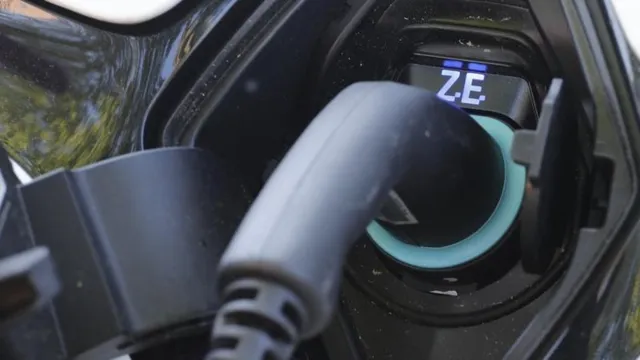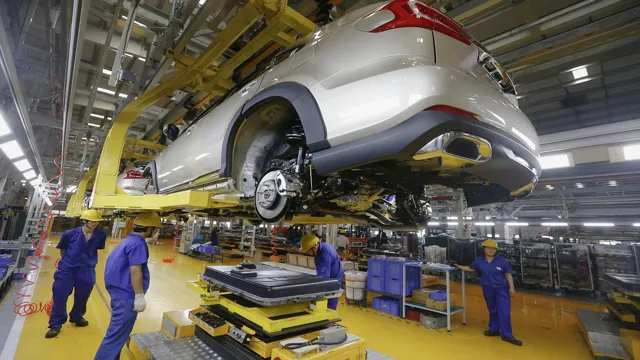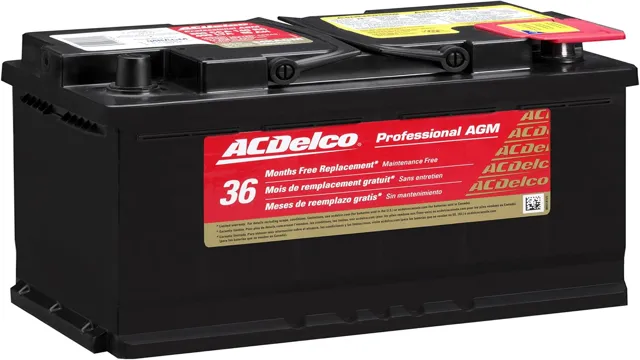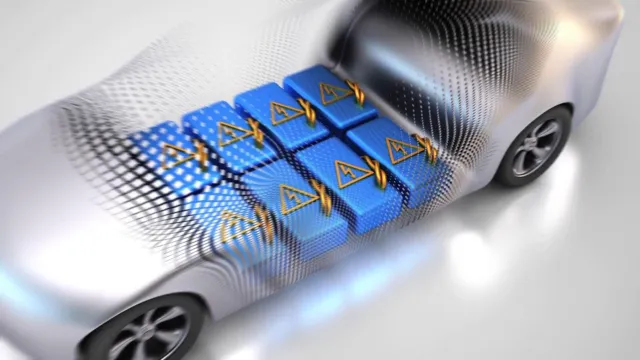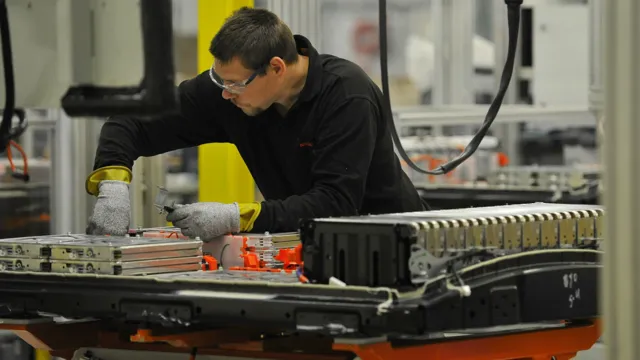Revolutionary Graphene Battery Powering the Future of Electric Cars
Electric cars are becoming increasingly popular, with many drivers turning to them for their low emissions and impressive fuel economy. But have you heard of electric cars with graphene batteries? These innovative batteries use graphene, a material made of carbon atoms bonded together in a hexagonal lattice, to power the car. Graphene batteries have the potential to revolutionize the electric car industry, offering faster charging times, longer battery life, and increased safety.
One of the key benefits of graphene batteries is their energy density. Graphene is a highly conductive material that can hold a large amount of energy in a small space. This means that electric cars with graphene batteries can travel further on a single charge than those with traditional lithium-ion batteries.
Graphene batteries also have a longer lifespan, as they are less prone to degradation over time. Another advantage of graphene batteries is their fast charging times. Traditional lithium-ion batteries can take hours to charge, but graphene batteries can be fully charged in as little as 15 minutes.
This means that drivers of electric cars with graphene batteries can spend less time waiting for their car to charge and more time on the road. Graphene batteries also offer increased safety compared to traditional lithium-ion batteries. Graphene is a highly durable material that is resistant to heat and fire.
This means that electric cars with graphene batteries are less likely to experience battery fires, which have been a concern with some lithium-ion batteries. Overall, electric cars with graphene batteries have the potential to be a game-changer in the electric car industry. They offer faster charging times, longer battery life, and increased safety, making them an attractive option for drivers looking to make the switch to electric.
As more research is conducted into the benefits of graphene batteries, we can expect to see more electric cars incorporating this innovative technology.
What is Graphene?
Graphene is an incredibly strong and lightweight material that has become increasingly popular in recent years. It is made up of a single layer of carbon atoms arranged in a hexagonal lattice. Graphene has many unique properties, such as its high electrical conductivity and ability to conduct heat.
It is also highly flexible, transparent, and can potentially be used in a variety of applications, including in the manufacturing of electric car batteries. One of the main benefits of using a graphene battery in electric cars is that they have the potential to provide much longer driving ranges and faster charging times compared to traditional lithium-ion batteries. As research and development in this area continues, it is possible that we will soon see electric cars with graphene-based batteries becoming more widely available.
Properties of Graphene
Graphene is a one-atom-thick layer of graphite that is densely packed with carbon atoms in a honeycomb lattice. It is considered the world’s thinnest and strongest material because of its incredible mechanical, thermal and electrical properties. Graphene exhibits unparalleled strength, stiffness, and toughness, with a tensile strength 200 times greater than steel.
It is also an excellent conductor of electricity and heat, making it a desirable material for energy and electronics applications. Graphene has a high surface area and is hydrophobic, meaning it repels water, which makes it ideal for water filtration and protection. Its unique properties have garnered significant attention from scientists and researchers worldwide, resulting in numerous breakthroughs in various fields, from healthcare to aerospace.
The potential applications of graphene are vast, and it’s rapidly revolutionizing the world of materials science.

Graphene vs Traditional Batteries
Graphene is a carbon-based material that is incredibly strong, lightweight, and flexible. Its unique structure allows it to conduct electricity much more efficiently than traditional metals such as copper or aluminium. Graphene has been touted as the future of battery technology, as it has the potential to create batteries that are smaller, lighter, and more powerful than traditional lithium-ion batteries.
In fact, some scientists believe that graphene has the potential to revolutionize the battery industry completely. So, what makes graphene so special? At its core, graphene is a super-thin layer (just one atom thick) of carbon atoms that are arranged in a hexagonal pattern. This pattern gives the material its unique properties, including its strength, conductivity, and flexibility.
As researchers continue to explore the potential applications of graphene, it’s clear that this material has the potential to change the world as we know it.
Benefits of Electric Cars with Graphene Batteries
Electric cars with graphene batteries are becoming increasingly popular due to their numerous benefits. Firstly, the use of graphene batteries results in longer battery life and quicker charging times, making electric cars more practical and convenient for drivers. Graphene batteries are also more efficient than traditional lithium-ion batteries, resulting in less energy waste and lower charging costs.
Moreover, the use of graphene batteries in electric cars makes them more environmentally friendly, as graphene is a highly sustainable and renewable material. Additionally, graphene batteries are safer than traditional battery alternatives, as they are more resistant to overheating and explosions. Overall, electric cars with graphene batteries are the future of sustainable transportation, providing drivers with a practical, efficient, and environmentally friendly option for getting around.
Improved Range
Electric cars with graphene batteries have revolutionized the automobile industry in many ways, particularly in terms of range. This technology addresses one of the biggest concerns of many drivers, which is the limited driving range of current electric cars. Graphene batteries can provide significantly more distance than traditional lithium-ion batteries.
For example, researchers at the Samsung Advanced Institute of Technology were able to create a graphene battery that can double the range of typical lithium-ion batteries while also having five times the charging speed. With such advancements, drivers can travel longer distances without worrying about finding a charging station. Plus, graphene batteries are lighter and take up less space than traditional batteries, which means they have the potential to provide even more space for passengers and cargo.
Overall, the improved range provided by graphene batteries is a significant advantage that can help push more drivers to switch to electric cars.
Faster Charging Times
Faster Charging Times are one of the biggest benefits of electric cars with Graphene Batteries. Graphene Batteries are highly efficient, and they can be charged much faster than traditional lithium-ion batteries. With Graphene Batteries, an electric car can be charged in less than an hour, allowing drivers to hit the road faster and enjoy their trips without any hassle.
The reason for the faster charging time is the high conductivity of graphene, which allows the battery to absorb more energy during charging and discharge it more quickly during use. Additionally, the Graphene Batteries have a longer lifespan than traditional batteries, which means drivers can enjoy the benefits of fast charging for a longer time. Overall, the faster charging time of electric cars with Graphene Batteries is a significant advantage that can make a real difference in the lives of drivers who rely on their vehicles daily.
Longer Lifespan
One of the most significant benefits of electric cars with graphene batteries is their longer lifespan. Traditional lithium-ion batteries used in most electric cars tend to degrade over time, resulting in reduced battery capacity and performance. However, Graphene batteries have shown a much-improved performance over traditional lithium-ion batteries, as they can retain their charge even after multiple cycles of charging and discharging.
This means that electric cars with graphene batteries can last much longer, with a lifespan of up to 20 years or more. This could potentially save car owners a significant amount of money in the long run, as they don’t have to replace their batteries as frequently as those with lithium-ion batteries. Moreover, longer battery life can also increase the resale value of the electric vehicle.
Therefore, electric cars with graphene batteries could benefit not only the environment but also the consumer.
Current Electric Cars with Graphene Batteries
As of now, there aren’t any fully electric cars that use only graphene batteries. However, there are some electric cars that use graphene in the construction of their batteries, resulting in improved efficiency and longer range. For instance, China’s Dongxu Optoelectronics in collaboration with Chinese Academy of Sciences (CAS) has designed a vehicle battery that incorporates graphene fibers.
According to their website, this technology increases the capacity of the battery while reducing the size and weight of the battery pack. Additionally, Italy’s Nawa Technologies has developed a supercapacitor using graphene-based electrodes which they claim enables up to five times more energy storage than existing supercaracitors. Even though these companies aren’t using pure graphene batteries, their advancements in incorporating graphene into electric car batteries are significant steps towards improving electric car performance and revolutionizing the auto industry.
GAC Motor Aion S
“GAC Motor Aion S and Graphene Batteries” Electric cars are becoming a popular choice for drivers who want to reduce their carbon footprint and save on fuel costs. The GAC Motor Aion S is one such car that boasts a range of advanced features, including graphene batteries. Graphene is a material that has gained attention for its exceptional properties, including high conductivity and strength.
In the context of batteries, graphene can enhance battery performance, improving efficiency and increasing range. The GAC Motor Aion S is equipped with a 50 kWh graphene battery that provides a range of up to 510 km on a single charge. The car also features an intelligent battery management system that optimizes battery performance and longevity.
This makes the GAC Motor Aion S a reliable and efficient electric car that represents the future of sustainable mobility.
Xpeng P7
One of the current electric cars that utilizes graphene batteries is the Xpeng P With this advanced technology, the vehicle is able to offer a range of up to 438 miles on a single charge. This impressive range is due in part to the high energy density of graphene batteries, which allows for more power to be stored in less space.
In addition to its range, the Xpeng P7 features fast charging capabilities, with the ability to charge from 30% to 80% in just 28 minutes. This feature alone makes electric vehicles more accessible to those who may not have the time or access to charge for extended periods. With its sleek design and advanced technology, the Xpeng P7 is a prime example of how electric vehicles are changing the game for traditional automobiles.
Future of Graphene Batteries in Electric Cars
Electric cars with graphene batteries have the potential to revolutionize the automotive industry. Graphene is a thin, lightweight, and conductive material that is extremely durable and has high energy density. This means that graphene batteries can store more energy for longer periods of time, resulting in extended driving range for electric vehicles.
In addition, graphene batteries charge faster than traditional lithium-ion batteries, making electric cars more convenient and accessible. With the growing demand for sustainable transportation options, the future of electric cars with graphene batteries looks promising. The only potential hurdle is the cost of producing graphene batteries, but with advancements in technology and mass production, the price is expected to drop significantly, making it a viable option for the mass market.
In summary, electric cars with graphene batteries have the potential to address some of the prominent challenges of electric vehicles and make sustainable transportation more accessible to the general public.
Conclusion
In conclusion, the electric car with a graphene battery is truly revolutionary. With its unparalleled energy efficiency, enhanced safety features and faster charging capabilities, it represents the evolution of sustainable transportation. In the same way that graphene is a superconductor of electricity, this car is a superconductor of innovation – ushering in a brighter, cleaner and more sustainable future for us all.
So, whether you’re a diehard petrolhead or a fervent environmentalist, it’s hard to deny that this car is truly electrifying.”
FAQs
What is an electric car with a graphene battery?
An electric car with a graphene battery is a car that uses a battery made of graphene, a highly conductive and lightweight material, as a source of power.
What are the advantages of using a graphene battery in an electric car?
The advantages of using a graphene battery in an electric car include faster charging times, longer battery life, and increased energy density, which results in a higher driving range.
How does a graphene battery compare to a traditional lithium-ion battery in terms of performance?
A graphene battery offers several advantages over a traditional lithium-ion battery, including faster charging times, longer battery life, and higher energy density, which results in a higher driving range.
Are there any drawbacks or challenges to using a graphene battery in an electric car?
While graphene batteries offer significant advantages over traditional lithium-ion batteries, there are still some challenges that need to be addressed, such as the high cost of production and the difficulty of scaling up production to meet demand.
